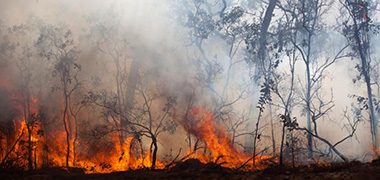
This role has a high level of AI exposure. While some human skills are required, many tasks could be automated or replaced by new technology.
Explore all careersEnvironmental Chemists study and monitor contaminants in the environment, assessing their impact on health and developing remediation strategies.
Get qualified to work as an Environmental Chemist with a course recognised across Australia. Speak to a training provider to learn more.
Browse occupations related to Environmental Chemist
The average salary for Environmental Chemists is currently $1,538 per week ($79,976 annually). These are median figures that include the salaries for new graduates as well as experienced scientists.
 Courses.com.au Team
Courses.com.au Team
There are approximately 26,300 Environmental Scientists employed across Australia right now, this includes Environmental Chemists. Increase your employability by obtaining supporting qualifications in a specialist field: oceanography, climate science, agriculture, food manufacturing, geology, fisheries, and more.
 Courses.com.au Team
Courses.com.au Team
To become an Environmental Chemist in Australia you need a solid foundation in both Chemistry and Environmental Science. A Bachelor of Science (Chemistry) followed by a Master of Environmental Science is an excellent pathway. Some Environmental Chemists come from an engineering background and advance their professional skills with a research degree in Environmental Chemistry and Ecotoxicology or a Master of Environmental Engineering and Pollution Control.
Source: Australian Government Labour Market Insights 2023
 Courses.com.au Team
Courses.com.au Team



Environmental Chemists are conservation scientists who study and monitor the presence of foreign chemicals and contaminants in the Earth’s groundwater, air, and soil. They determine how chemicals enter the natural environment and what impacts they may have on human health as well as the overall wellbeing of the natural environment.
As an Environmental Chemist you could be taking samples of wastewater, assessing the level of contamination of agricultural soil, entering field data into a structured database, writing a report with recommendations for onsite remediation of contaminated holding ponds, reading a peer-reviewed journal on air-borne contaminants, or attending an international conference for Environmental Scientists and conservation professionals.
To succeed in this occupation you will need a genuine concern for the environment, the passion and drive to combat pollution and ecotoxicology, and the ability to present meaningful reports and recommendations for remedial action to key decision-makers.